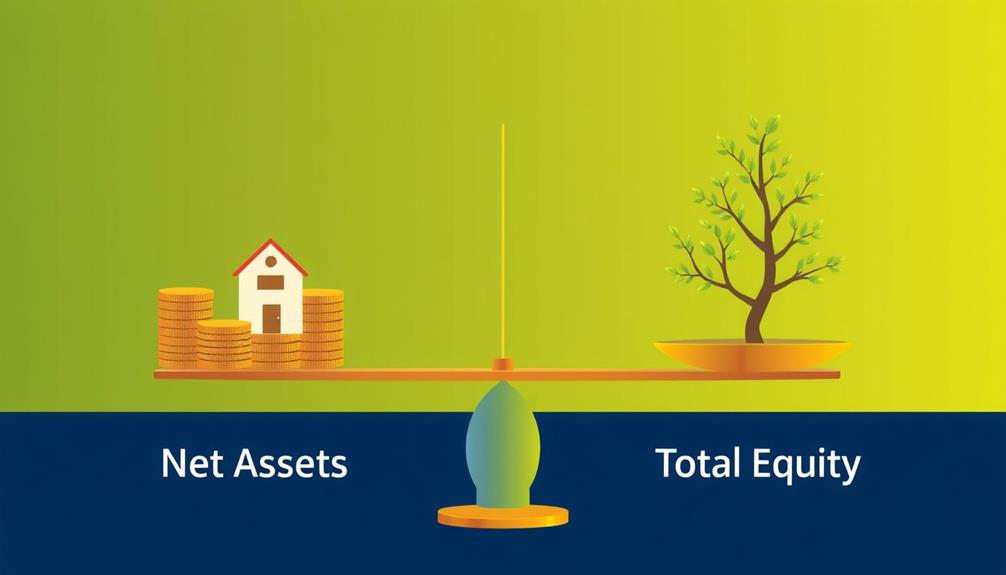Harold Ford's career showcases his influence across politics, finance, and community initiatives. You might know him as a former Congressman who advocated for universal healthcare and economic justice. He also shaped financial regulation through his support for the Gramm-Leach-Bliley Act. After politics, he shifted to finance, working with Morgan Stanley and PNC Financial Services, while also taking a role as a political commentator. His efforts focus on empowering underrepresented communities and enhancing youth leadership. You'll find that his complex legacy reflects the intricate balance of ambition and public service in America's evolving political landscape.
Background Information
You'll want to explore Harold Ford Jr.'s Memphis upbringing and education, which laid the foundation for his impressive career.
His time in Congress highlighted key legislative contributions and initiatives that reflect his commitment to social issues.
Understanding these elements will give you a clearer picture of his impact and achievements.
Memphis Upbringing and Education
Harold Ford Jr. grew up in Memphis, Tennessee, surrounded by a politically engaged family that shaped his early perspectives on leadership and public service. Being the eldest son of former Congressman Harold Ford Sr. and Dorothy Bowles Ford, he was immersed in a world where civic duty was paramount. This environment fueled his ambition and passion for politics from a young age.
For his education, Ford attended St. Albans School in Washington, D.C., before pursuing higher studies. He earned a Bachelor of Arts degree in American History from the University of Pennsylvania in 1992, which underscored his commitment to understanding the nation's past and its political landscape.
After completing his undergraduate degree, he gained practical experience as a staff aide to the Senate Budget Committee and worked as a special assistant at the U.S. Department of Commerce.
In 1996, he achieved his Juris Doctor from the University of Michigan Law School. Although he initially faced a setback by failing the Tennessee bar exam during his House campaign, his educational journey and political family background laid a strong foundation for his future in public service.
Key Legislative Contributions
With a solid educational foundation and a politically charged upbringing, Ford made significant legislative contributions during his time in the U.S. House of Representatives from 1997 to 2007.
He's known for his strong advocacy for universal healthcare, pushing for policies that aimed at expanding access and funding for embryonic stem cell research. His commitment to economic justice was evident in his bipartisan efforts that sought to address systemic inequalities.
Ford remarkably supported the authorization of the Iraq invasion in 2002, reflecting the complex realities of international relations at that time. He also voted for the Gramm-Leach-Bliley Act in 1999, which repealed parts of the Glass-Steagall Act, showcasing his involvement in financial regulation debates.
Additionally, Ford was a vocal opponent of the death penalty, advocating for drug policy reform that emphasized rehabilitation over punishment. His work on the House Budget Committee and the House Committee on Financial Services allowed him to shape critical fiscal policies during his tenure.
Legislative Initiatives and Achievements
During his tenure in Congress, Ford pushed forward numerous legislative initiatives that aimed to improve healthcare access, support scientific research, and promote social justice. As a member of the U.S. House of Representatives, Harold Ford Jr. championed universal healthcare, working to guarantee that all Americans had access to essential medical services. He also advocated for funding embryonic stem cell research, recognizing its potential to advance medical science and improve lives.
In addition to his healthcare initiatives, Ford was actively involved in significant financial legislation. He supported the Gramm–Leach–Bliley Act in 1999, which altered financial regulations and contributed to the evolution of the financial services industry. His role on the House Budget Committee allowed him to influence key economic policies and budgetary decisions.
Ford's political stance included support for the Iraq invasion in 2002, which showcased his engagement in national security matters. Throughout his time in Congress, he effectively balanced advocacy for progressive social issues with a focus on economic and financial reforms, solidifying his reputation as a dedicated public servant committed to addressing the needs of his constituents.
Current Updates or Main Focus

Harold Ford's current focus revolves around community engagement initiatives, where he aims to make a significant impact.
You'll also notice his seamless shift into corporate leadership at PNC Financial Services, illustrating his versatility.
Additionally, he's exploring venture capital investments, showcasing his commitment to economic growth and innovation.
Community Engagement Initiatives
Engaging with the Boys & Girls Clubs of America, Ford champions youth development and community support initiatives that empower young people across the nation. By focusing on education disparities and advocating for social justice, Harold Ford aims to create pathways for underrepresented youth. His role on the board of directors for the National Urban League highlights his commitment to economic empowerment and civic engagement.
You'll find Ford actively participating in public speaking events where he emphasizes the critical need for community service and active participation in civic affairs. He believes that by addressing poverty and education disparities, we can markedly improve the lives of disadvantaged populations. Through his involvement in various nonprofit organizations, he inspires future generations to become leaders and advocates for change.
Ford's dedication to these initiatives showcases his belief that empowering youth is essential for a brighter future. He encourages communities to come together, support one another, and invest in the potential of young people. By fostering civic engagement and advocating for equitable resources, Ford works tirelessly to make a positive impact in society, ensuring that every child has the opportunity to thrive.
Transition to Corporate Leadership
After leaving Congress, Ford seamlessly shifted into corporate leadership, taking on significant roles that demonstrate his influence in the financial and sports sectors.
Harold Ford Jr. began his post-congressional journey as a managing director at Morgan Stanley from 2011 to 2017, where he excelled in managing relationships with high-net-worth clients. His expertise in finance led to his appointment as Vice Chairman of Corporate & Institutional Banking at PNC Financial Services in December 2020, further establishing his footprint in the corporate sector.
In 2017, Ford took a bold step into sports management by becoming the CEO of the Memphis Grizzlies, showcasing his versatility and leadership skills in an entirely different arena. Additionally, he joined Fox News as a political contributor in April 2021, providing insights and analysis on key political issues.
Throughout this evolution, Ford has remained committed to civic engagement, utilizing his corporate roles to advocate for social issues affecting urban communities. His journey highlights how a former politician can effectively navigate and influence diverse sectors while maintaining a strong focus on community impact.
Venture Capital Investments
Building on his extensive experience in corporate leadership, Ford has turned his attention to venture capital investments, where he leverages his political and financial expertise to support innovative startups and underserved communities.
In 2021, he joined the investment firm Morgan Stanley as a managing director, focusing on diversifying the firm's investment portfolio through strategic venture capital initiatives.
Ford actively champions entrepreneurship, emphasizing the need for small business funding that prioritizes diverse founders.
By investing in sectors like technology, healthcare, and renewable energy, he aims to drive economic growth and create jobs, particularly in areas historically overlooked by traditional investors.
His efforts not only fuel innovation but also promote social equity within underserved communities.
Detailed Analysis

Let's look at some key aspects of Harold Ford's recent initiatives and shifts in public perception.
You'll see how his community outreach programs reflect his commitment to growth and improvement.
Additionally, we'll explore how the media has shaped his reputation over the years and what his vision for the community entails.
Recent Community Outreach Programs
Harold Ford Jr. has championed recent community outreach programs that tackle economic empowerment and social equity, particularly through his partnership with the National Urban League.
He's actively addressing education disparities by advocating for access to quality education for underrepresented communities in Tennessee. You'll find that his commitment to youth development shines through his engagement with the Boys & Girls Clubs of America, where mentorship programs aim to uplift underserved populations.
Moreover, Ford tackles poverty and healthcare access by collaborating with local organizations to provide essential resources and support for affected communities. His outreach initiatives often involve public speaking events, where he inspires others to get involved in civic engagement.
By emphasizing the importance of community service, he encourages individuals to take an active role in improving their neighborhoods. Through his efforts, Ford is making a significant impact, fostering economic empowerment and addressing systemic issues that hinder progress.
His dedication to these causes illustrates a holistic approach to community outreach, one that resonates with the values of inclusivity and support for those in need. This work not only changes lives but also strengthens the fabric of the community as a whole.
Media Coverage and Reputation Shift
As media narratives surrounding Ford evolved, they highlighted both his initial rise as a Democratic star and the controversies that later shaped public perception of his political career.
Harold Ford Jr. gained significant media coverage after his keynote address at the 2000 Democratic National Convention, positioning him as a promising voice for the party. However, during his 2006 Senate campaign, despite extensive interviews and debates showcasing his moderate views, he lost to Republican Bob Corker. This defeat shifted public opinion regarding his viability as a candidate.
After leaving Congress, Ford moved to a role as a political commentator, appearing on networks like MSNBC and Fox News. Here, he faced increased scrutiny regarding his financial disclosures and allegations of misconduct, which impacted his reputation in the political arena.
While engaging discussions on race and social issues kept him relevant, the media's focus on his controversies created a complex narrative around his character. Over time, the combination of his achievements and the controversies influenced how the public viewed him, demonstrating the powerful role of media coverage in shaping political legacies.
Ford's Vision for Community Growth
Ford's vision for community growth centers on economic justice and empowering underserved populations through initiatives like healthcare reform and education access. He firmly believes that access to quality healthcare is a fundamental right that can uplift entire communities. By advocating for universal healthcare, Ford aims to eliminate disparities that often affect marginalized groups.
Education access is another cornerstone of his vision. You can see his commitment to ensuring that every child, regardless of their background, has the opportunity to receive a quality education. This focus on education not only fosters individual growth but also strengthens communities as a whole.
Diversity and representation are essential in Ford's approach. He promotes inclusive policies that empower African American communities, ensuring their voices are heard in the political arena. Civic engagement is equally important to him; he encourages young leaders to take an active role in shaping their futures.
Through organizations like the National Urban League, Ford works tirelessly to create opportunities for economic empowerment, addressing social issues that hinder progress. His multifaceted vision for community growth reflects a deep commitment to fostering equity and justice for all.
Public Reaction or Expert Opinions

You might notice that public reaction to Harold Ford has been mixed, especially on social media platforms like Twitter.
While some praise his charisma and insights, others criticize his past political decisions, reflecting a divided perception.
Political analysts also weigh in, highlighting both his contributions and the challenges he faced in a shifting political landscape.
Twitter Trends and Comments
Discussions on Twitter about Harold Ford Jr. often highlight his impressive oratory skills and progressive policies, while also sparking debates over his post-congressional financial dealings. Many users reminisce about his keynote speech at the 2000 Democratic National Convention, where they praised his ability to connect with younger voters.
As a former congressman and now a political commentator, Ford's social media presence remains strong, generating mixed public reaction. During his 2006 Senate campaign, his focus on education reform and healthcare resonated with many, prompting discussions around his bipartisan approach. However, his electoral defeat to Bob Corker still casts a shadow over his political ambitions.
Critics often voice concerns regarding his financial disclosures since leaving Congress, which fuels ongoing debates about accountability in politics. While some applaud his contributions to political discourse on platforms like Fox News and MSNBC, others express polarized opinions on his analyses.
Ultimately, Ford's career continues to inspire both admiration and skepticism, making him a prominent figure in contemporary political discussions on Twitter. This dynamic reflects the complexities of his legacy and the ongoing public interest in his political journey.
Public Perception and Media Response
Many observers see Harold Ford Jr. as a polarizing figure whose career elicits both admiration for his achievements and criticism for his perceived inconsistencies. During his 2006 Senate campaign, Ford Jr. showcased a strong media presence, engaging platforms like 'The Colbert Report' and attracting endorsements from prominent figures like Barack Obama. His bipartisan efforts in the U.S. House of Representatives earned him respect, positioning him as a moderate Democrat.
However, public perception shifted as critics pointed to his Wall Street ties and support for the Gramm–Leach–Bliley Act, which some voters felt clashed with his pro-consumer rhetoric.
Following his election loss to Bob Corker, media coverage spotlighted Ford Jr.'s conversion into political commentary, where he solidified his role as a prominent voice on networks like MSNBC and CNN. This shift allowed him to maintain relevance in political discourse, although it also sparked debates about his credibility given his business ventures.
The blend of his political legacy with his post-Congressional career in finance and sports management complicates his public image, prompting ongoing discussions about the intersection of politics and private enterprise. Some view his transition as a natural progression, leveraging his connections and influence to navigate the corporate landscape, while others critique it as an example of the revolving door between government and business. Comparisons have been drawn to the Mark McKinnon political strategist career, highlighting the fine balance between public service and personal gain. This duality continues to fuel debates about the ethical implications of intertwining political clout with private interests.
Political Insight From Analysts
Analysts frequently highlight Harold Ford Jr.'s unique position in the political landscape, noting how his career reflects both the opportunities and challenges faced by young leaders in a divided political climate. His rise as one of the youngest members elected to Congress at age 26 showcases the growing representation of younger voices in politics, particularly within the Democratic Party.
Ford's keynote speech at the 2000 Democratic National Convention marked a pivotal moment, establishing him as a rising star capable of connecting with diverse audiences. His bipartisan approach, including support for the Gramm–Leach–Bliley Act, illustrates the complexities of maintaining political alliances amid polarization.
Political commentators often cite his 2006 Senate campaign as a critical moment for African American candidates, particularly with endorsements from figures like Barack Obama. This campaign emphasized the potential for diverse leadership in statewide races.
Transitioning into a political commentator and business executive post-Congress, Ford has successfully maintained relevance in contemporary policy discussions. Analysts view this shift as a strategic move, allowing him to influence governance and serve as a voice for young leaders maneuvering today's political challenges.
Broader Implications

Harold Ford's journey in politics opens up important conversations about how the Democratic Party approaches fundraising and supports emerging leaders.
You can see his influence in the rise of youth leadership programs that aim to empower the next generation.
As we explore these broader implications, consider how Ford's experiences shape the future of political engagement and representation.
Impact on Democratic Fundraising Strategies
Ford's ability to blend traditional fundraising tactics with modern strategies has reshaped how Democratic candidates approach financial support in their campaigns.
Harold Ford Jr. effectively leveraged his family's political legacy to galvanize financial backing from key demographics within the Democratic Party. His impressive track record during congressional campaigns, where he consistently garnered around 80% of the vote, underscores the strong backing he received from various fundraising sources.
In his successful Senate campaign in 2006, Ford raised over $8 million, drawing substantial contributions from individual donors and political action committees alike. This demonstrated his cross-party appeal and ability to attract diverse funding.
His role as the keynote speaker at the 2000 Democratic National Convention showcased his knack for energizing grassroots fundraising efforts while simultaneously attracting major donors, setting a standard for future candidates.
Even after leaving Congress, Ford continued to influence Democratic fundraising strategies through his involvement in financial services. His emphasis on financial acumen highlights the growing importance of integrating sophisticated fundraising techniques into campaign strategies, ensuring the Democratic Party can effectively compete in a rapidly evolving political landscape.
Emerging Youth Leadership Programs
Emerging youth leadership programs are redefining political engagement by equipping young people with the skills and confidence to actively participate in civic life, echoing the innovative fundraising strategies that have shaped modern Democratic campaigns. These programs focus on fostering civic engagement, particularly among diverse and underrepresented communities. You'll find that mentorship from established figures, like Harold Ford Jr., plays an essential role in guiding youth through their journey of political participation.
By emphasizing community service, these programs instill a sense of responsibility and connection to local issues. Research shows that participants gain self-esteem and enhanced decision-making skills, empowering them to take on leadership roles in their communities. Additionally, many of these initiatives advocate for educational reform, pushing for access to quality education that aligns with Ford's legacy of championing similar causes.
As you engage with these youth leadership programs, you'll notice they not only provide resources and networking opportunities but also create a pipeline of future leaders who can navigate and influence the political landscape effectively. This holistic approach guarantees that young voices are heard and valued in shaping the future of our democracy.
Empowering Future Political Leaders
Empowering future political leaders involves creating opportunities that inspire young individuals to engage in public service and advocate for social justice. Harold Ford Jr. serves as a powerful example of this empowerment. As the first African American to represent Tennessee in the U.S. House of Representatives at just 26, Ford's political career highlights the importance of youth engagement in shaping the future of politics.
By advocating for universal healthcare and drug policy reform, he demonstrates how addressing social justice issues can resonate with future leaders. His journey reflects the critical need for mentorship; aspiring politicians can learn from his experiences steering both public service and business.
Shifting to roles like managing director at Morgan Stanley and CEO of the Memphis Grizzlies, Ford showcases the diverse paths available to political leaders, encouraging young individuals to leverage their skills in various sectors.
As a media commentator and public speaker, Ford continues to inspire and influence the political landscape. By fostering mentorship opportunities and promoting civic engagement, you can guarantee that future generations of political leaders are equipped to tackle the challenges of tomorrow, just as he has.
Frequently Asked Questions
Did Harold Ford Lose an Election?
Yes, you're right. Harold Ford lost his Senate election in 2006 to Bob Corker, receiving 47% of the votes. Despite this setback, he continued to engage in public service and media afterward.
How Long Did Harold Ford Serve in Congress?
Harold Ford served in Congress for a decade, from 1997 to 2007. During that time, he represented Tennessee's 9th congressional district, consistently winning reelection and establishing himself as a prominent figure in the House.
What Nationality Is Harold From the Five?
You'll find that Harold Ford is American. Born in Memphis, Tennessee, he embodies a significant part of the nation's political landscape, influenced by his family's legacy and his impactful career in public service.
Is Harold Ford Jr. Mother?
Harold Ford Jr.'s mother is Dorothy Bowles Ford. She's a former Tennessee state representative, known for her community service and advocacy in education and civil rights, greatly influencing Ford Jr.'s political aspirations and values.
Conclusion
To sum up, Harold Ford's political journey showcases his resilience and adaptability in a changing landscape.
His recent activities reflect his commitment to public service and addressing pressing issues.
You can see how his influence extends beyond politics, shaping discussions on important topics.
As you consider his career, it's clear that Ford's legacy will continue to spark conversations and inspire future leaders.
Keep an eye on his developments; they might just signal the next phase of his impactful journey.









